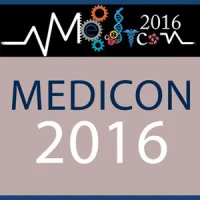“I investigated the first known piece of technology we had in medicine and found that it appeared in Egypt more than 3, 000 years ago in the form of a prosthetic toe,” Prof. Clark said during his talk, Crisis, What Crisis? How Clinical Engineers Will Solve the Billion Dollar Healthcare Funding Gap.
Using England’s National Health Service (NHS) as an example, Clark demonstrated an analysis model with nine possible outcomes for both Patient and Healthcare System benefit that CHEATA has developed in order to assess both best solutions for patients while economising effectively.
In assessing new technology, The Matrix, as it is called, analyses to what extent a new piece of equipment or process will succeed or fail in both areas and if it is worth proceeding.
Challenging the tendency of healthcare management to focus on the expense and poor outcome of proposed equipment or processes, Clark showed how The Matrix can indicate when a decision is reaping results and how to take advantage of this path for best practice.
“We need to challenge the view that the latest technology is always more expensive than what it replaces,” Clark told delegates at the Emerging Challenges in Clinical Engineering and Health Technology Assessment session. “Our job as Clinical Engineers is to make innovations cheaper and better. The NHS and I’d say most modern healthcare systems simply don’t have the money to carry on as they are.”
The three-day Medical and Biological Engineering and Computing congress is taking place in Paphos, Cyprus until April 2.
“Medicon 2016 provides a common platform for the cross fertilisation of ideas, and to help shape knowledge and scientific achievements by bridging complementary disciplines into an interactive and attractive forum under the special theme of the conference that is Systems Medicine for the Delivery of Better Healthcare Services,” a press release said.
Sessions in the three-day event are being held under the umbrella of ‘Systems Medicine for the Delivery of Better Healthcare Services’, there are ten tracks in focus during the event. They are:
· Biomedical Signal Processing;
· Biomedical Imaging & Image Processing;
· Bioinstrumentation, Biosensors & Bio-Micro/Nano Technologies;
· Bioinformatics, Computational Biology and Systems Biology;
· Biomechanics, Robotics and Rehabilitation;
· Therapeutic and Diagnostic Systems, Devices and Technologies;
· Healthcare Information Systems & Telemedicine;
· Technologies for Active Ageing & Wellbeing;
· Biomedical Engineering Education & Society;
· Clinical Engineering and Health Technology Assessment.
Delegates from Europe, North America and Asia are taking part in the Medical and Biological Engineering and Computing congress.
Source: MEDICON
Image Source: MEDICON







